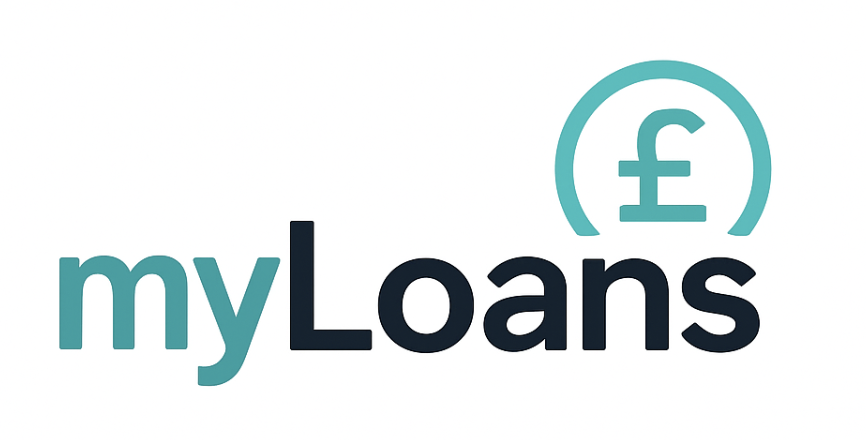0% APR and Interest-Free Credit Cards in the UK: A Guide
If you’ve ever seen adverts for 0% APR credit cards or wondered what does 0 APR mean?, you’re not alone. For many in the UK, these cards can be a useful financial tool, offering a period where you don’t pay interest on purchases, balance transfers, or sometimes both. But understanding exactly how zero interest credit cards work — and how to use them responsibly — is key to avoiding hidden costs and making the most of these offers.
This guide will explain what 0 percent credit cards are, how they work, the different types available, and how to find the best 0 transfer credit card or interest free purchase credit card for your needs. We’ll also cover the risks, compare UK providers, and highlight alternatives if a credit card isn’t right for you.
What Does 0% APR Mean?
APR stands for Annual Percentage Rate — the total yearly cost of borrowing, including interest and certain fees. Normally, when you spend on a credit card, interest is charged if you don’t pay off your balance in full each month.
A 0 percent APR credit card offers a temporary period where you pay no interest on your balance. Depending on the card, this may apply to:
-
Purchases (spending in shops or online)
-
Balance transfers (moving debt from another card)
-
Money transfers (moving funds into your bank account)
For example, if you buy £500 worth of goods on a 0% purchase credit card with a 20-month offer, you can spread the cost over that time without paying interest — provided you make at least the minimum payments and clear the balance before the 0% period ends.
Types of 0% Credit Cards in the UK
Not all 0 interest credit cards are the same. Understanding the differences helps you pick the right one.
0% Purchase Credit Cards
A 0 percent purchase credit card gives you an interest free period on new purchases. This can be useful if you need to make a large purchase — such as furniture, travel, or electronics — and want to spread the cost without interest.
Example: A card may offer up to 24 months interest free on purchases.
0% Balance Transfer Credit Cards
If you already have credit card debt, a 0% balance transfer card allows you to move your balance onto a new card with no interest for a set time. This can save you money compared to paying standard credit card rates, which are often 20% APR or higher.
Most cards charge a transfer fee (usually 1–3% of the amount transferred). For example, moving £2,000 with a 2% fee means you’ll pay £40 upfront, but you could save hundreds in interest.
You can compare the best balance transfer cards on sites like MoneySavingExpert or Which?.
0% Money Transfer Credit Cards
A money transfer card lets you move funds from your credit card into your bank account, usually at 0% interest for a limited time. These can help with unexpected bills or consolidating overdrafts. A transfer fee normally applies.
Combined Cards
Some cards offer 0% on both purchases and balance transfers, though the promotional periods may be shorter than specialist cards. These are versatile but may not be the cheapest option overall.
How Long Does 0% APR Last?
The interest free period varies by provider. UK cards typically offer:
-
Up to 24–30 months on balance transfers
-
Up to 20–24 months on purchases
-
Up to 12 months on money transfers
After the promotional period ends, standard interest rates apply — often above 20% APR. This is why it’s vital to clear your balance before the deal ends.
What Does 0% on Purchases Mean?
When a card advertises 0% on purchases, it means you won’t pay interest on new spending during the promotional period. For example, if you spend £1,000 on a zero purchase credit card with a 20-month offer, you could repay around £50 per month without paying any interest.
However, missing payments or going over your limit can cause you to lose the offer, reverting your balance to the standard APR.
Who Can Get a 0% Credit Card?
Lenders in the UK base approval on your credit history and income. The best interest free credit card offers usually go to applicants with good to excellent credit scores.
If you have poor credit, you may still be approved but with shorter 0% periods or higher fees. You can check your eligibility without harming your score using comparison sites like Experian, ClearScore, or MoneySuperMarket.
Pros and Cons of 0% Credit Cards
Benefits
-
Spread payments interest free over months or years.
-
Pay down debt faster with balance transfers.
-
Flexibility for large purchases or emergencies.
-
Many cards also offer rewards like cashback or loyalty points.
Risks
-
High revert APRs once the 0% period ends.
-
Fees on transfers or late payments.
-
Temptation to overspend, leading to unmanageable debt.
Using these cards wisely requires discipline: make repayments on time, stay within your limit, and avoid new debt you can’t repay.
Best Practices for Using 0% Credit Cards in the UK
-
Pay at least the minimum each month (set up a direct debit to avoid missed payments).
-
Clear the balance before the 0% period ends to avoid interest.
-
Check fees — especially on balance and money transfers.
-
Avoid cash withdrawals as these are usually excluded from 0% offers.
-
Don’t apply for too many cards at once, as multiple applications can hurt your credit score.
Where to Compare UK 0% Credit Cards
Before applying, always compare offers. The following UK resources are reliable starting points:
These sites update offers regularly, showing the longest 0% deals and the lowest fees.
Alternatives to 0% Credit Cards
If you don’t qualify for the best deals, or if you’re worried about overspending, consider:
-
Credit union loans – lower rates and safer borrowing (Find Your Credit Union).
-
Personal loans – fixed repayments and rates.
-
Overdrafts – useful for short-term borrowing, but check fees.
-
Buy Now, Pay Later (BNPL) – sometimes interest free, but risky if repayments are missed.
FAQs About 0% Credit Cards
What does 0 APR mean?
It means you won’t pay any interest on your balance for a set period.
Do 0% cards really have no fees?
Some have no annual fee, but balance/money transfer fees often apply.
Can I get a 0% card with bad credit?
It’s possible, but the 0% period may be shorter. Consider credit builder cards first.
What happens after the 0% period ends?
The balance reverts to the standard APR, which can be 20–30% or more.
What’s the best 0 transfer credit card in the UK?
This changes regularly — check MoneySavingExpert for updated recommendations.
Conclusion
0 percent APR credit cards can be powerful tools for managing spending or consolidating debt — if used responsibly. They allow you to spread payments or clear balances without interest, saving you money. But they also carry risks if you miss payments or fail to repay before the promotional period ends.
If you’re looking for the best 0% interest credit cards UK, always compare offers, check the fees, and consider your ability to repay. Used wisely, these cards can provide real financial flexibility and help you manage your money better.
Alternatives to Payday Loans | Safer Borrowing Options
Payday loans are often marketed as a quick fix for cash emergencies, but they are not the only option available. Whether you’re facing an unexpected bill, car repair, or temporary cash shortfall, there are several alternatives to payday loans that may offer lower...
Payday Loans with Bad Credit | Direct Lender Options
If you’ve been refused credit elsewhere and are wondering whether you can still get a payday loan with bad credit, you’re not alone. Thousands of people in the UK search every month for options like “payday loans with bad credit” or “direct lender payday loans”. While...
Personal Loan Debt Consolidation UK – Is It Right for You?
Juggling multiple credit cards, overdrafts, or loans can be stressful and expensive. A debt consolidation loan allows you to combine everything into a single monthly repayment, often at a lower interest rate. In 2025, UK lenders from high street banks to online...
Emergency Loans UK – How to Borrow Fast in 2025
When an urgent expense hits — like car repairs, medical bills, or a broken boiler — quick access to funds can be essential. In 2025, emergency loans in the UK provide a way to borrow fast, with some lenders offering same-day decisions and payouts. This guide explains...
Top 10 Personal Loan Providers UK 2025 – Rates, Features & Eligibility
The UK personal loan market in 2025 offers more choice than ever, with banks, supermarkets, online lenders, and credit unions all competing for borrowers. The best deal for you depends on your credit score, loan size, and repayment term — but comparing providers side...
Best Debt Consolidation Loans UK 2025 | Top Options
Managing multiple debts can feel overwhelming, especially with credit cards, overdrafts, and personal loans all charging different interest rates. A debt consolidation loan can simplify your finances by rolling everything into one fixed monthly repayment — often at a...
Best Bad Credit Loans UK 2025 – Top Lenders Compared
Having a poor credit score, CCJs, or past defaults doesn’t mean borrowing is out of reach. In 2025, several UK lenders specialise in products designed for people with bad credit — offering smaller loans, flexible repayment terms, and eligibility checks that won’t harm...
Home Repair Loans UK – How to Cover Unexpected Costs in 2025
A leaking roof, broken boiler, or urgent plumbing issue can quickly turn into an expensive problem — often when savings aren’t available. In 2025, home repair loans in the UK provide a way to spread the cost of essential fixes into manageable monthly repayments. This...
Green Energy Loans UK – How to Finance Eco-Friendly Home Improvements in 2025
Eco-friendly upgrades such as solar panels, insulation, heat pumps, and EV chargers can cut energy bills and boost property value — but they require a significant upfront investment. In 2025, green energy loans in the UK provide a way to spread the cost of sustainable...
Moving House Loans UK – How to Cover Relocation Costs in 2025
From deposits and removal vans to solicitor fees and new furniture, moving house in the UK can quickly add up to thousands of pounds. Not everyone has savings set aside to cover these costs upfront. In 2025, moving house loans in the UK provide a way to spread...
Education Loans UK – How to Fund Studies and Professional Courses in 2025
Not all education in the UK is covered by government student finance. Postgraduate degrees, professional qualifications, and private training often require self-funding — with tuition fees and course costs running into thousands of pounds. In 2025, education loans in...
Holiday Loans UK – How to Spread the Cost of Travel in 2025
Holidays can be some of the most rewarding experiences of the year, but they often come with a price tag that’s hard to cover upfront. From flights and hotels to all-inclusive packages and once-in-a-lifetime trips, the costs can add up quickly. In 2025, holiday loans...
Best Personal Loans UK 2025 – Top Lenders Compared
The UK personal loan market in 2025 is more competitive than ever, with high street banks, supermarkets, online lenders, and credit unions all offering products to suit different needs. Choosing the right provider can save you hundreds in interest and ensure...
Medical Loans UK – How to Finance Healthcare Costs in 2025
While the NHS covers most essential treatment, waiting lists, private care, and specialist procedures mean many people face out-of-pocket medical expenses. From dental work and fertility treatment to cosmetic surgery and urgent private healthcare, costs can run into...
Car Loans UK – Personal Loan vs Hire Purchase vs PCP in 2025
Buying a car in 2025 usually means more than just choosing the right vehicle — it also means deciding how to pay for it. In the UK, the three main options are a personal loan, hire purchase (HP), or personal contract purchase (PCP). Each has its own advantages,...
















